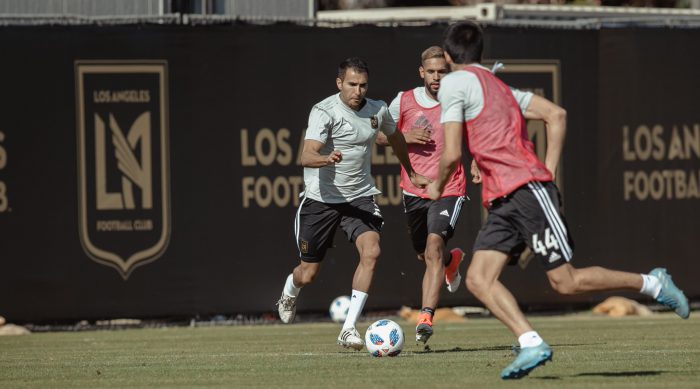MLS vagabond Steven Beitashour searching for long-term home with LAFC

Los Angeles Times – LOS ANGELES, Steven Beitashour is, by all accounts, a really good soccer player. He’s also a good teammate and a positive presence in the locker room.
So why, he wants to know, has he passed through more clubs than a tone-deaf DJ in the past six years, going from San Jose to Vancouver, then Toronto FC before landing with LAFC last month?
“Every team I’ve been on, I really enjoyed my time there. And I would have loved to stay,” said Beitashour, who slots in a right back on a veteran LAFC back line. “For some reason teams just don’t value [you] as much as maybe you value yourself.
“So you’ve got to go somewhere else where you feel appreciated.”
That’s one theory. But there’s another, one that has more to do with dollars than sense. Because as Beitashour’s skill and experience has grown, so has his guaranteed salary, going from $49,612 in 2013, his last year in San Jose, to $264,000 in 2017, his final season in Toronto, where he appeared in 22 games for the best club in MLS history.
That’s a nice raise but hardly breathtaking in a league that has seen team salary caps grow by 30% and the minimum wage go up nearly 40% over the same period. As a result more than two dozen defenders made more money last year than Beitashour, who wasn’t even the top-paid outside back on his own team.
Yet Beitashour, 31, is the one teams have always considered expendable – partly because, given the league’s Byzantine pay structure, he argues that his salary may actually be too low.
Under MLS rules, teams can spend up to $4 million in league money to buy down contracts that exceed the maximum salary charge of $505,625, getting those players under the payroll ceiling. However, that money can’t be used on players who earn less than that maximum wage, meaning Beitashour’s salary represents a quarter-million-dollar hit against the league’s $4.035-million cap.
That makes him both too cheap and too expensive at the same time.
“I don’t get the negotiating schemes,” he said. “My category, from $200,000 to [$505,000] are – what kind of word can I use that’s appropriate?”
He eventually settled on a euphemism for sexual intercourse.
But if the league’s rules have made it difficult for him to find a permanent home, Beitashour’s talent has guaranteed there was always someone willing to welcome him.
“I’ve been fortunate that each time I have been out of a contract, I’ve had multiple offers,” said Beitashour, who talked to a half-dozen teams before signing a free-agent deal with LAFC just after training camp opened last month.
The expansion Los Angeles franchise won out for reasons that go beyond cash since its offer wasn’t the most lucrative. Beitashour’s itinerant journey through MLS taught him and his wife, Karlie, to examine factors other than just money before deciding where to go. So the two Bay Area natives weighed things like the city, the climate, the stadium and proximity to family.
Another consideration was Southern California’s large Iranian population, which is estimated at 500,000, making it the largest in the U.S. That’s a ready-made fan base for Beitashour, the son of immigrant parents who played for Iran in the 2014 World Cup.
“It’s great news that Steven Beitashour has signed with the LAFC,” said Qumars Hojjaty, publisher of the Iranian-news website Pars Times. “Iranian American soccer fans [will] show up to watch him play.”
The team hopes so.
“We’ve said from the get-go that when people talk about our on-field identity, we want to represent our city. And that is with cultural diversity,” said John Thorrington who, as the team’s vice president of soccer operations, has built one of the most diverse rosters in MLS by signing players from 13 countries.
“That filter is involved in all of our decisions,” said Thorrington, who was born in South Africa. “I wouldn’t say that’s the first thing we look for. But we certainly appreciate that we’re talking about uniting the world’s city through the world’s game.”
Beitashour hopes the team also appreciates the work ethic players in his position bring.
“We do the dirty work people don’t necessarily see,” he said. “The long runs, the runs just to break up little plays. When coaches are watching, they see the little details. And that’s what they want.”
This time he hopes they want it for more than just a couple of seasons.




